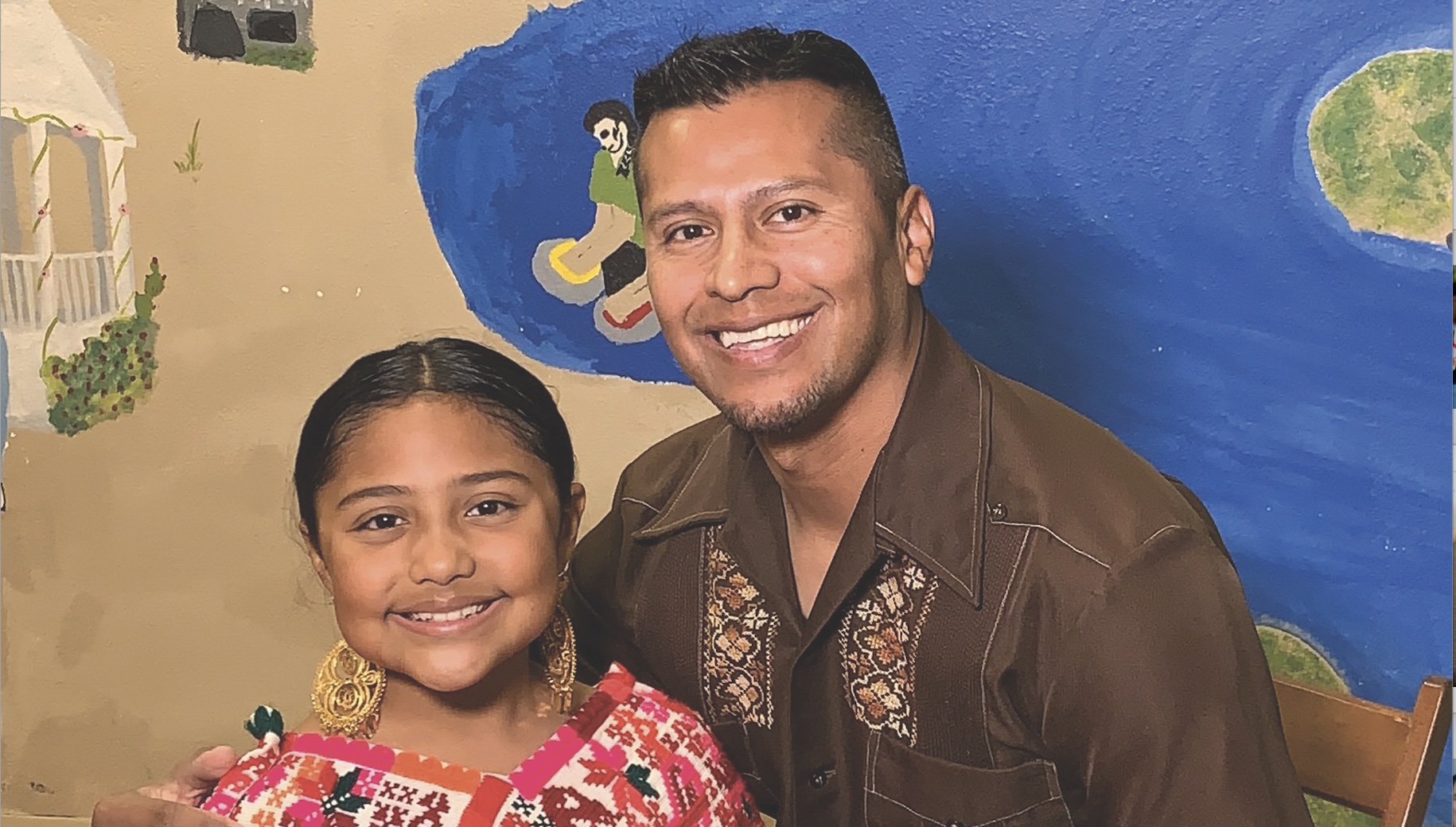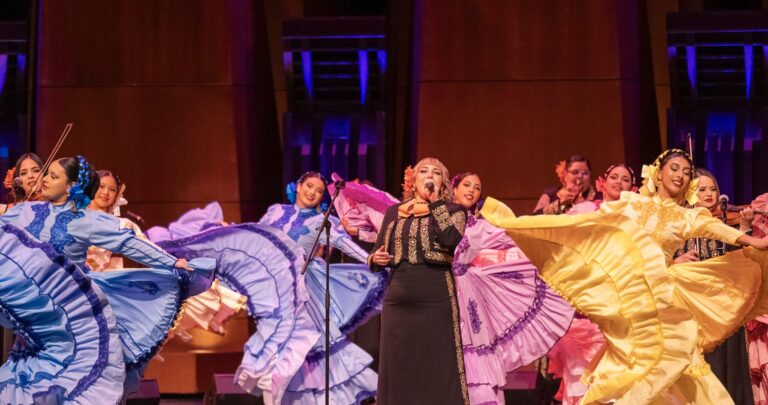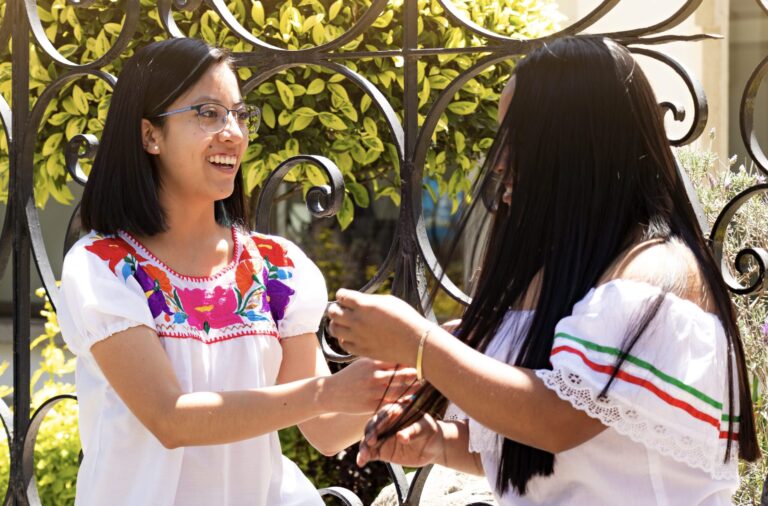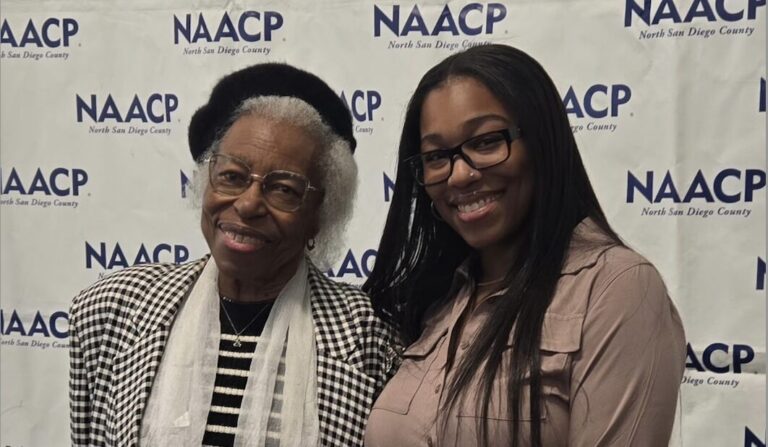By Melanie Slone
“I see myself in a lot of kids…looking for someone to guide them…I was there myself one time. So, that’s why I knew it had to be a discipline.” José Jaimes, the executive director of the nonprofit folklórico center Tierra Caliente Academy, explains why he decided to open the center.
Jaimes believes a connection to one’s family culture is essential. “If you know where you come from, you know where you’re going. To have a well-rounded person… proactiveness, confidence. That comes from knowing who you are.”
He and his daughter, Maya, talked to us about their passion for dancing and singing and how it can help others find their way.
“Usually, if you know where you come from, then you find a purpose. Maybe there’s other people who you would like to help in that process…It’s about cultivating the future leaders,” says Jaimes.
He believes that passion for culture begins in the home, “where the parents want their kids to learn a little bit more about where they come from. Because most of the kids are not going to know how it is to live in Mexico.”
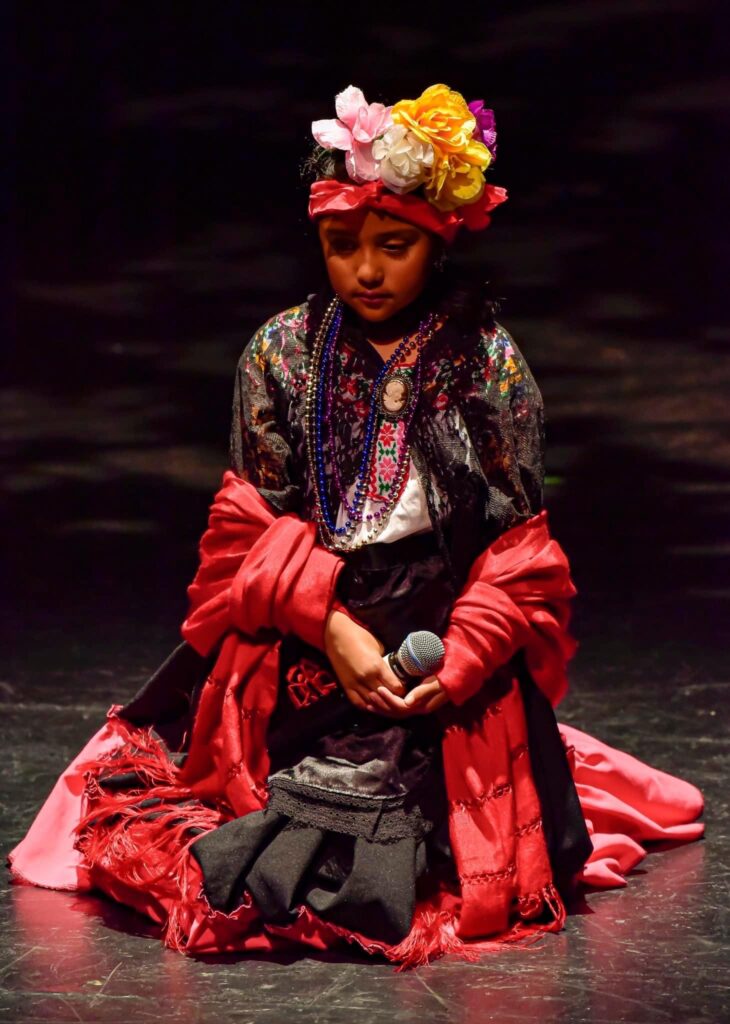
At-risk Youth Meets Mentors
Jaimes says he was categorized as an “at-risk youth” when he was 10. After moving from Mexico to Vista with his parents, he says he suffered a “culture clash.” “For the first couple of years, obviously I did not speak English. It was during a time where we could not speak Spanish in class…”
Even though he spoke no English, he was not placed in classes for English learners.
“My theory is that, because my last name is Jaimes, somebody made a mistake and they thought it was James, …so, I was placed in regular classes.…So, for the first couple of years, I had no idea what was going on…I couldn’t wait to finish class so I could go hang out with my friends.”
Because he and his friends were first-generation, non-English speakers, “living in the poor section of Vista, we were all considered at-risk youth.”
Things would change for Jaimes. “In eighth grade, I found my first mentor. His name is Ron Stebenne. He was with Youth Opportunity Network.”
Jaimes explained how Stebenne recruited “at-risk” youth and invited them on Fridays for juice and cookies at the youth center. “That was the hook…I mean juice and cookies was a luxury…And it’s free!”
He remembers going to the youth center for movies and popcorn and ping-pong games.
“There was like something that was not part of our lives, so that was like a little escape from whatever was going on in life.”
The group set up soccer and martial arts teams, as well as church retreats.
“I think if it hadn’t been for that, … I don’t know what would have happened.”
He says his friends were doing poorly in school and getting into trouble., but he went to movies and participated in sports.
Then he met his second mentor in high school, his school librarian, Peggy Weinman. “She introduced me to my first book. She was the one that said, the pathway for you to get better is you have to read. You’re going to improve on your English. And you’re just going to find another world through books.” He still remembers that the first book she introduced him to was A Bell for Adano.
Jaimes says he improved in school and became the first person in his family to graduate high school, and then the first one to go to community college, Palomar, where he met his third mentor, John Valdez, through MEChA.
“If it hadn’t been for those three mentors, I don’t know where I would be…That’s why I understand the importance of being an example, being a leader, because there’s others who are looking at you….”
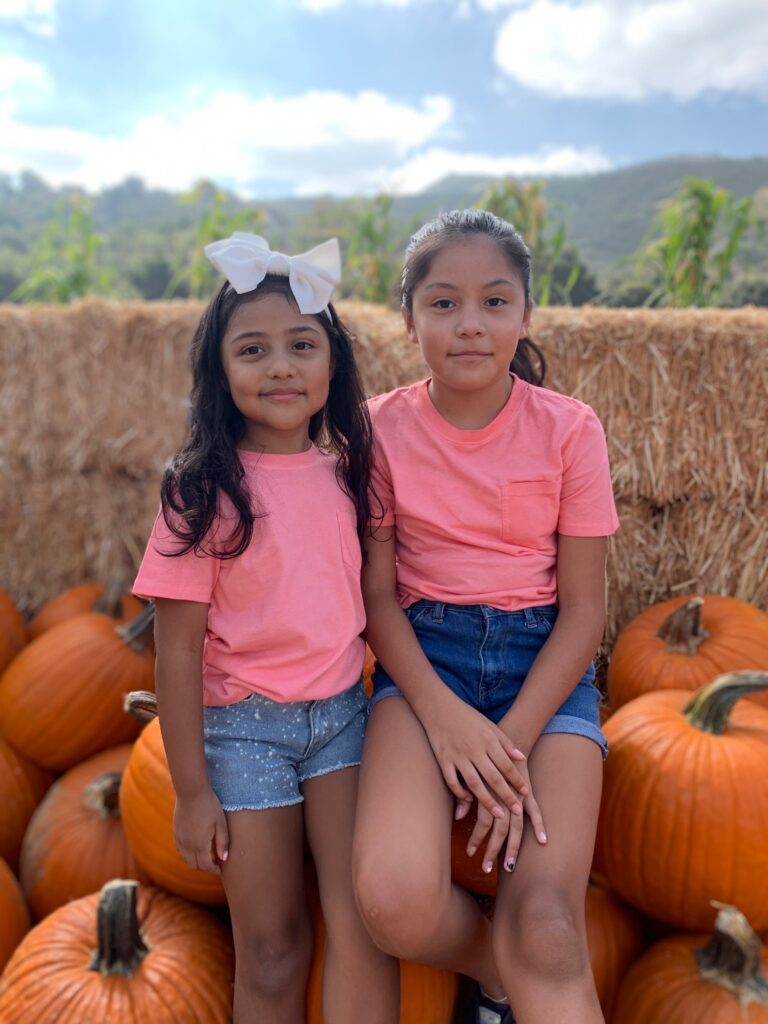
Ballet Folklórico and Tierra Caliente Academy
After graduating from Palomar College, Jaime’s life took a twist. “I decided to open Tierra Caliente as a nonprofit.”
He had begun in a ballet folklórico group in high school, being good with his feet thanks to soccer and martial arts. “And then I loved just hanging out with my friends. Everybody was very passionate about dance…. I fell in love with it. “
He had the opportunity to study ballet folklórico in Mexico City, eventually landing a spot in a company. “And that’s where, from a recreational activity, it became a discipline. Because I was there with very, very disciplined dancers who knew the dance studio was work.”
He returned to Vista with a dance group and soon decided to go his own way. After helping with the folklórico clubs at Vista High School, Cal State San Marcos, and Palomar College, he felt ready to teach at his own dance school. Because his family hails from Tierra Caliente, Guerrero, he decided to give his academy that name—Tierra Caliente.
With help from that first mentor, Stebenne, he formed his nonprofit in 2013, then raised enough funds to open a studio in 2014.
“It became like a cultural hub.” Today, the academy has 12 folklórico programs, a theater program, and the LuMaya music program. Some 140 members, 70% of them 17 and younger, learn the concept of what discipline is, says Jaimes.
From the age of 7, dancers train to “be ready to go on stage and become performers.” Jaimes believes giving a good performance on stage helps people learn to stand up and give a speech, to ask for help when they need it, to be confident and think outside the box.
His students also learn to work with other people through choreography, and to be leaders by competing for solos.
Jaimes says young minds today are like “diamonds in the rough” that need to be polished. Especially Latinos, he says, “just need a little bit of guidance, a little bit of discipline…It takes us as a community to make sure that we nurture them. We teach them. We guide them. And we just help them along the way with the Academy.”
He also says that discipline must be balanced with fun. “There’s only so much we can push…remember that you’ve got to balance it somehow because you don’t want to burn out their young minds.”
Although 80% of the members are Latino, the academy is open to everyone. “I think the parents are really exposing their kids to a lot of cultural activities,” Jaimes said, “To learn about diversity, the uniqueness of it, so we do see that a lot at the academy. …the academy is open to anybody.”
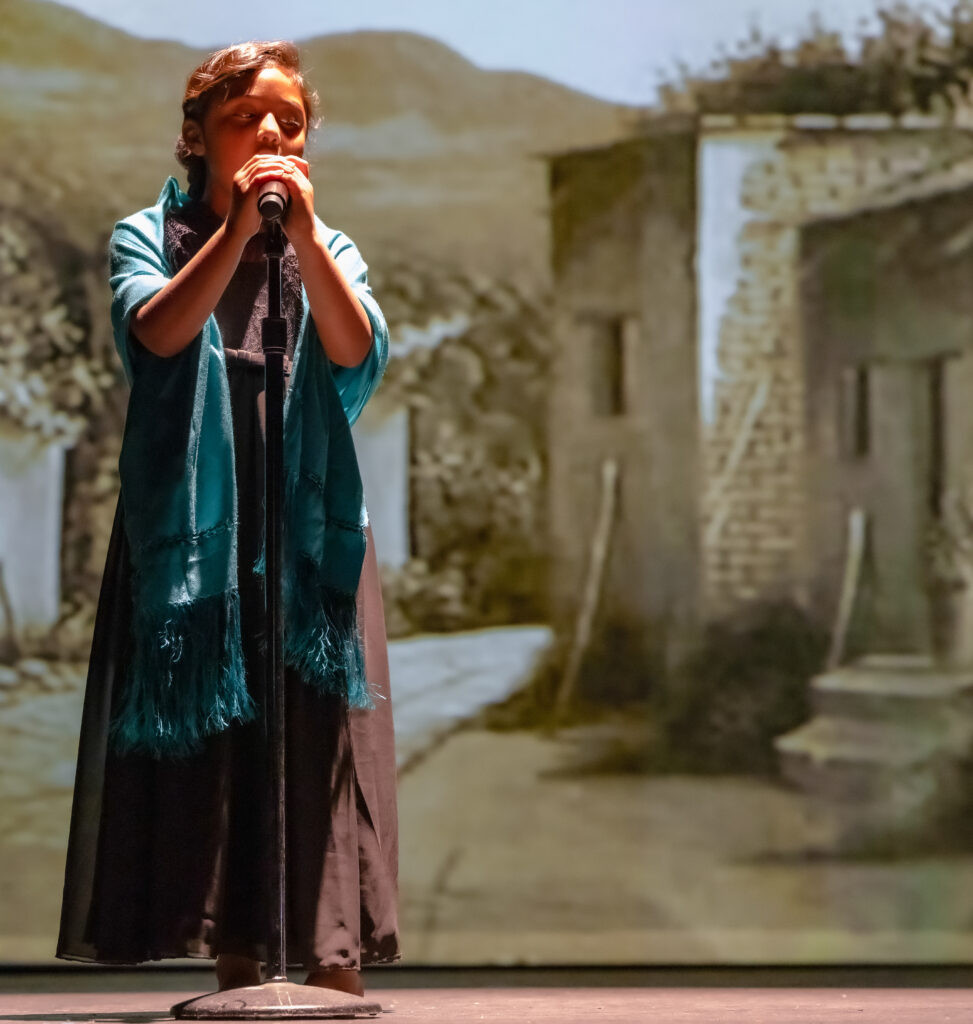
Maya Jaimes and LuMaya Delight with their Cultural Performances
Maya Jaimes will barely be nine in May, but she already knows what it is like to perform in front of large crowds. “I sing, I dance. Sometimes I stage drama,” she told us.
Maya sings in both Spanish and English and just took up dancing last year, having reached the seven-year-age requirement at Tierra Caliente Academy. She says she prefers to sing in Spanish. “It has more, like, emotion. And when you sing, you can really feel what you’re singing, what you’re saying.”
She also says her practice helps her remember her trip to Mexico and her Mexican roots. At home, she and her dad José Jaimes and sister Luna speak only Spanish.
Maya says she would like to be a singer, dancer, or artist when she grows up. “You can do whatever you want by just practicing,” she tells our readers.
LuMaya
Maya says her performance name is LuMaya, because she is Maya, and her sister’s name is Luna. Maya sings, and Luna, who is 13, dances.
Maya remembers that during the pandemic the two girls started dancing as their dad played the guitar, and Maya felt the urge to sing. “We started practicing,” she said. “[Dad] said, instead of just watching TV and playing video games, we have to do something that isn’t electronics. So, he got the guitar and he started playing Celos de Luna,” she said.
The sisters have created videos of cultural arts and crafts for the academy, to celebrate their Mexican roots with others.
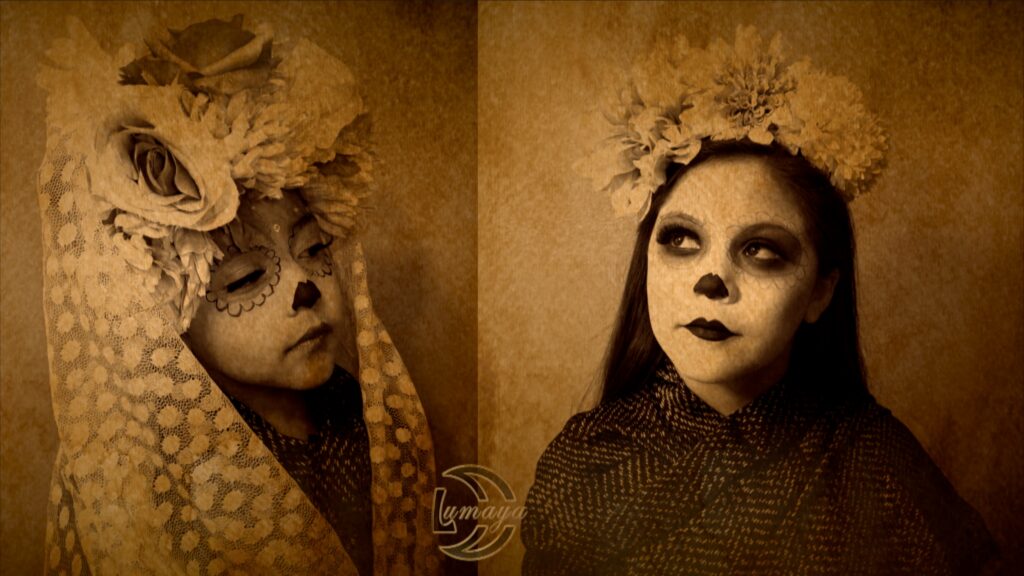
Maya tells us her sister Luna is kind of like a manager to her, finding leads and supporting her work. Her dad also tells us Maya has plenty of support from her mom, Rubi Montaño.
One of Maya’s dreams is to perform on a huge stage in front of a lot of people. “One of my favorite singers is Whitney Houston, and the song that I’m working on is I Have Nothing, and it has two really high notes that I can’t really reach now, so that’s why I’m practicing belting a lot,” she said.
Besides singing and dancing, Maya loves to read, write stories, create art, run, and take care of her three cats.
See them perform
Maya Jaimes and LuMaya will perform at the Mariachi Festival with Route 78 Rotary on April 16, and at the Latino Book & Family Festival at MiraCosta College on June 10.
Tierra Caliente Academy of Arts
Jose Jaimes, Executive Director
501c3 nonprofit
Tierra Caliente Academy is the only Spanish-language community program in North County San Diego. It puts on 2–3 plays a year and a puppet show. The plays include a cultural component portraying Mexican roots, history, and language.

